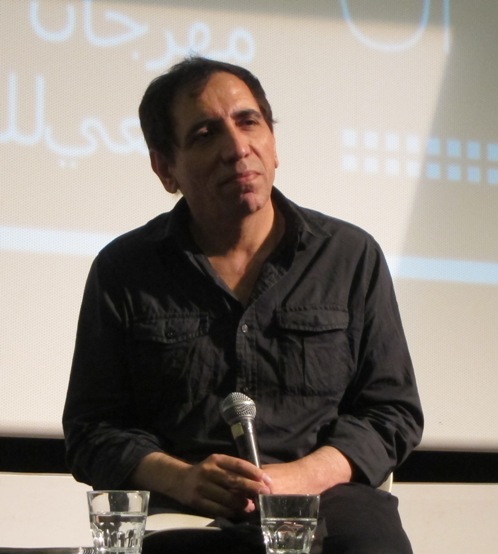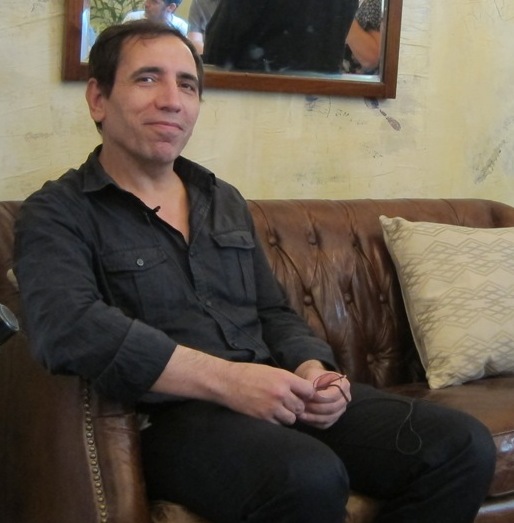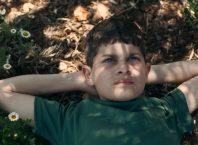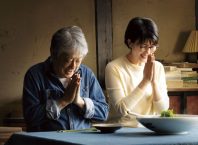In the heat and chaos of this region, it is all too easy to become discouraged. After all, what can one person do?
Iranian director Mohsen Makhmalbaf came to Israel last week with a message of peace, a call to action and inspiration: “I came here first to break two taboos, first: coming to Israel is a taboo in Iran. Someone has to break that and then other people will come. When I sent my first film to Israel, I had many conflicts in Iran, I have many attack by right newspaper, by politicians, but after many Iranian filmmaker send their film here – it’s easy. You should do something you know, and then other people will become more brave to follow you.”

The Jerusalem Film Festival hosted a tribute to Makhmalbaf with screenings of his most recent film The Gardener (2012), as well as Gabbeh (1995), Kandahar (2001), and Salaam Cinema (1995). The director was present at the screenings and conversed with audiences following the screenings. In a press meeting that took place at Mishkenot Sha’ananim, the director talked with warmth and an open smile, merging film, poetry, philosophy, and politics in the flow of his words.
This was not Makhmalbaf’s first time here, as he filmed his most recent film The Gardener in Israel. Describing his feelings on that first visit, he said, “When I came here I was surprised, because in Haifa I felt I was in Teheran… it was very close to my city.” Despite having some of his footage confiscated at the airport, Makhmalbaf had a positive view of his experience in Israel, saying “I had a goal of peace, and when you have peace as a goal, in your brain, in your heart, the atmosphere changes, no one felt dangerous to me. That is why I am happy that I made this film here, and I hope that I can make more. Not only me, other Iranian filmmakers. If you make film in Iran, if I make film in Israel, peace is more close than war.”
Makhmalbaf said that his films and books are banned in his own country. He left Iran eight years ago when after Ahmadinejad came into power and has resided in Europe ever since. Asked whether Israelis have reason to fear Iran, Makhmalbaf said there are more people in Iran today with an education, “and when people are educated, even though they are religious, they are not so dangerous” and that one should only fear “hatred and dogmatism… from both sides.”
Makhmalbaf expressed his own changing views over time in a poetic way, “When I was 17 years old my hero was Che Guevara, in the age of 30 my hero was Ghandi. Now I love both, but I prefer go to the way of Ghandi because my experience taught me that the violent way to reach to democracy does not [provide an] answer because the way should be correct…democracy is not a goal, democracy is a way… What is freedom? Each day you will see new aspect of freedom and we should search and search. When I was young I was thinking being successful means reaching to the top of the mountain. Now I am thinking going to the top of the mountain is the best goal.”
Mentioning Satyajit Ray and Federico Fellini as some of the filmmakers who have influenced him, Makhmalbaf discussed the importance of maintaining a connection to the ever-changing reality that surrounds us. He described seeing portraits of Russian authors Chekov and Dostoevsky: “Chekov was like this – sharp eyes, I could feel his ears listening but Dostoesvsky’s one was like he couldn’t see anything except himself… reality corrects me, when you look to reality you are more healthy than when you are thinking too much…we could become crazy without reality. Why do politicians put us in prison? To cut us off of reality.”
The distance between artist and activist disappeared as Makhmalbaf went on to say, “Reality is wind when it is blowing. [It’s] not only an image. I love wind. When the wind is blowing in the tree you will see the dance of the tree, it is the best dance of world… it is a very free dance and it is very alive. Reality is one of the sources of Iranian film, and also the poem, is a completely different side of that. We say Iranian cinema is like a tree: the leg is in the earth but the head is in the sky.”

Makhmalbaf expressed his views on this digital era in cinema: “I believe that cinema has very important role in our lives, through cinema we travel to different countries, we know many countries through cinema. The digital format is a revolution. Before, cinema was in hands of genius or people who have relation to money or power. Now everyone has the power of cinema in his hands, and talent become more important. Before, if you made a film, you were filmmaker, nowadays if you make a film you are not a filmmaker, because everyone can make a film. If you have a pen then you can write, but you are not a writer. The pen gives you the opportunity to be writer but you need talent more than [you need] the pen.”
“I am not optimistic about the result [of all these films], but optimistic about the democratic way. Year by year the not-talented people become tired and cinema becomes better.”





